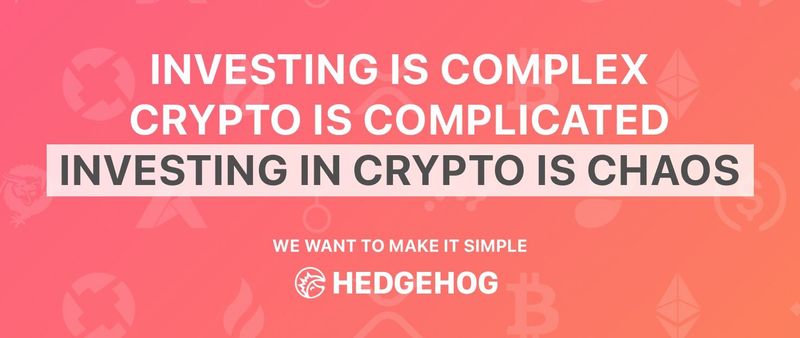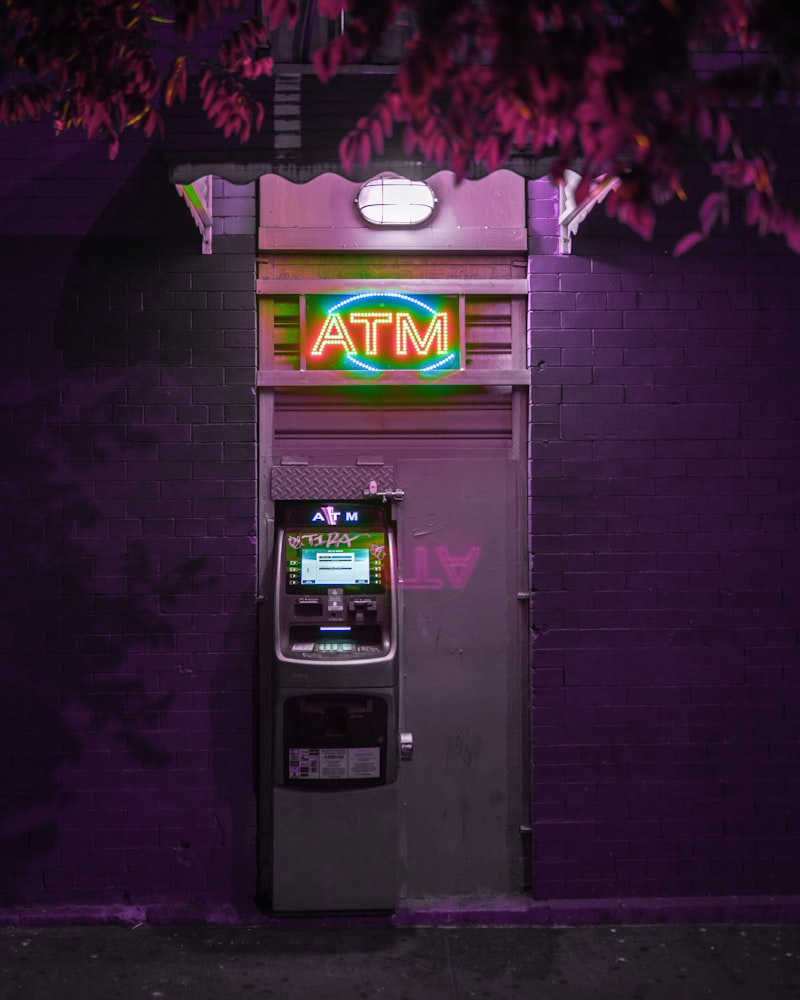Hedgehog correspondent Ryan S. Gladwin introduces Sam Bankman-Friend, crypto darling and the latest big-name billionaire to grace the headlines. Hedgehog hopes that Bankman-Fried would embrace his humorous representation here with Puggy Moneybags (photo via Surya Buchwald) which we hasten to clarify is entirely affectionate!
Sam Bankman-Fried, CEO and founder of the crypto exchange FTX. The man who made $10 billion by 28 years young. The man with the ironic name (Bankman lol). The 'richest man in crypto'! Okay cool, we know all that but… a little more backstory please?
Here's the quick fact file:
- Born and raised in California
- Lived in Hong Kong and now the Bahamas
- He is vegan
- Rarely drinks (roughly twice a year)
- Named in Forbes 30 Under 30 Finance list in 2021
- Sleeps on a bean bag
Growing Up
In an interview with Blockworks' Jason Yanowitz, Bankman-Fried revealed that his upbringing was fairly dull.
"[I was] bored and boring, a little bit of both. I wasn't really into kid things but you're also in a position where you're not able to hang out with the grown ups. It felt… uncomfortable." Sam said. "Outside of that, I think it was a really good upbringing. Nothing bad happened basically."
He is the son of two Stanford law professors, Joseph Bankman and Barbara Fried. Neither gave up their surnames hence Sam's double barreled name.
Barbara Fried described herself as 'inching toward' utilitarianism while her husband and sons are 'take-no-prisoners utilitarians'. She saw this in Bankman-Fried at the tender age of 14, after she noticed the youngster had been reading up about the philosophy unprompted.
For those of you who don't know, utilitarianism simply put is a strain of philosophical thinking that promotes the maximizing of pleasure and minimizing of pain for the maximum number of people possible. Think of the trolley problem — you kill the one person rather than the five.
Later in his life, he identified himself as a "total, act, hedonistic/one level, classical utilitarian." There's a lot of jargon in there and to be totally honest, that is beyond the scope of this article. But those who know, know. If you don't know and want to know, give it a Google real quick.
When he was young, he would often stumble out of his room to debate and discuss philosophical readings he'd found. His mother recalls one time that Bankman-Fried ranted to her about philosopher Derek Parfit labelling an argument he disagrees with as 'repugnant' rather than countering the point.
"If you're gonna take this on, you damn well need to grapple with the argument," he exclaimed. Clearly, Sam was intelligent and, maybe most importantly, curious from a young age.
This gift may have been a blessing and a curse. He confessed that he doesn't remember much of his childhood.
"I struggle to even think about what I did." He said. "I guess I slept and went to school. Maybe there was a little bit of homework but I can't figure out what else happened."
His mother once said that he once came home from school crying about how bored he was. Intelligence can sometimes make school harder. This spurred his parents to enroll him in advanced math classes and camps. Here his parents saw the young boy light up and finally start reaching his potential.
Bankman-Fried moved onto Massachusetts Institute of Technology where he graduated with a major in physics and a minor in math.
"Nothing I learned in college ended up being useful," he said. "School is just not helpful for most jobs… everyone knows it's true." And I'll drink to that Sam! *cries in student debt*
Starting Alameda Research
Coming out of college he started his career at Jane Street Capital, where he spent three years (and four months, to be exact) as a trader. He primarily traded international ETFs which he later described as "the Wild West" due to timezone, tax and law differences.
Now for the crypto stuff. In November of 2017, Bankman-Fried co-founded Alameda Research, a crypto trading firm. Research? What does that have to do with trading crypto? Nothing actually. Funnily enough, they decided to have 'research' in the name to reduce the risk of being rejected from banks from the get-go.
"If we named our company 'Shitcoin Daytraders Inc.' they'd probably just reject us," he said. "No one doesn't like research."
For Alameda's first big trade, Sam organised an arbitrage in Japan. At the time, the Kimchi Premium had become an elusive way for crypto traders to make money — essentially Bitcoin was more expensive in South Korea compared to the US. There were a lot of roadblocks that made this arbitrage difficult so Sam turned to Japan instead.
"Japan was trading at a 10% premium which is not as cool as a 30% premium [that South Korea was trading at]. But 10% is still pretty cool," he said. "It's still absolutely totally fucking unheard of in traditional finance."
The arbitrage wasn't smooth sailing due to dealing with Japan instead of South Korea. Unfortunately, walk you through every detail of the story — we simply don't have the time or ink to do so. It sounds more like a chapter in a book than a paragraph in an article. However, here's a list of the issues he faced:
- US Banks not wanting to deal with crypto after depositing to Coinbase
- Getting increased withdrawal limits with US banks
- You can't withdraw yen unless you're Japanese… so you have to be Japanese
- Now you need increased withdrawal limits with Japanese banks
- Need an international Japanese bank account
- Explaining what crypto trading / arbitrage is to someone who speaks a different language
- Hiring a translator
- Being suspected of money laundering
- Hiring law firms to explain there's been a misunderstanding
- Physically having to be in Japan AND the US… at the same time
- Having only an hour window to make the trade (USD -> BTC (US) -> BTC (JAPAN) -> YEN -> USD)
AND BREATHE. Yep. It was a lot.
They did this for a couple weeks before the opportunity disappeared. At the trade's peak, Alameda Research was trading $10-15 million in BitCoin. Not accounting for overheads, that's a $1-1.5 million profit every day. My first trade no longer feels like a story worth telling…
Over the next two years, Alameda Research became essential to the cryptocurrency ecosystem, providing liquidity across the globe. The firm grew to the point where they were turning over approximately one billion dollars, across 35 exchanges, every day. That was around 5% of the global crypto volume 🤯
Starting FTX
Through the use of the 35 exchanges at Alameda, Bankman-Fried became extremely frustrated with some exchanges. He said, 'if you won't fucking fix this I will!'
So he started the crypto derivatives exchange FTX in April 2019. Rather than purchasing an already existing exchange and improving upon it, Sam decided to build everything from the ground up. Simply because he felt they could do it better.
He then considered whether FTX should offer whitelabel services, meaning that other companies could use their product. Similar to open source software. They contacted 'a lot' of exchanges and offered their derivatives exchange product.
While in talks with exchanges, FTX's coin $FTT went on pre-sale and they saw a surprising amount of interest. Bankman-Fried saw that not only does he believe in FTX but so does the public. Meaning whitelabeling was no longer an option. But why the hype around FTX?
Exchanges like Coinbase focus on being noob friendly while appeasing US regulations. FTX is based in Hong Kong so the firm can offer more flexible and experimental trading options for institutional and retail investors.
Allowing more risky plays through options, leveraged tokens and most notably 'Tokenized Stocks'. Sam Bankman-Fried sees the idea of the market only being open Monday to Friday between set times as, frankly, ridiculous. How do you fix that? Tokenized Stocks. These digital coins will track the price of a traditional stock (e.g. Amazon) while liberating it from the restrictions of the normal stock market. This is not available in the US due to regulations but they aim to move into US markets.
One way they have done so is through the acquisition of Blockfolio, an app that allows users to track their portfolio, in July 2021. Sam Bankman-Fried commented on this deal saying, "[this is] doubling down on our commitment to being the number one crypto trading platform for both retail and institutional users. Rebranding Blockfolio shows our commitment to mobile trading, and is just another step in growing our brand on a global scale."
As a further move into the US market FTX has signed a 19 year stadium naming rights deal with Miami Heat for over $135 million. Oh wait, they're not done. While they were at it they got Tom Brady (yes, Tom Brady) to be an ambassador for FTX's US exchange. So they now have the FTX stadium and America's sweetheart on their team. The exchange isn't even three years old yet.
Since starting the exchange, Sam has taken a step back from Alameda and is no longer involved with the day to day work. He now sees FTX as his baby and doesn't plan 'taking the gas off it' any time soon.
Effective Altruism & Philantraphy
If you Google Sam Bankman-Fried, almost everywhere will mention a philosophical term: effective altruism — that's why we've waited so long to drop it in. But it is important to mention because it's a core value to his being. Put simply, effective altruism is using reason to help others in the most effective way.
He has used this approach by donating $5 million to the Joe Biden presidential campaign. This placed him as the second largest CEO supporter of the campaign, just behind Michael Bloomberg.
His thinking behind this was that the few million dollars he donated will actually affect the way a few trillion dollars is spent — through the budget, policy changes and more. Biden raised just over $1 billion, this money will affect $1 trillion dollars so in a way that's a 1000x investment.
Being a billionaire and having this as a core value is an interesting prospect — some would even call it an oxymoron. How can one hoard so much wealth while maintaining the belief that you should give to benefit others? Surely you have more than enough money to effectively improve the lives of thousands, no, millions.
There is a line of thinking (that Sam subscribes to) that compounding his capital right now will be worth more in the long run — rather donating large now. In theory, he could save up to the magic $330 billion needed to solve world hunger and become the most altruistic person of all time.
"I'm not sure when I'm going to give. It may be spread over time. There is going to at least be a fair bit of building up. Right now for instance, it's not the right time for me to give the bulk of it because my businesses are compounding quite quickly," he said. "I think it is really important that I give at least some each year [...] to prove to the world but just as importantly to myself that this isn't bullshit, I really do mean it."
Sam donated $8-10 million in 2020 but it seems he plans to donate much more in the future.
The self-made billionaire has innovated in the crypto space, after having a childhood of diving into philosophy. Once he earned his wealth he didn't push his philosophical views to the side, however. He speaks openly about his philanthropy and how he plans to donate more in the future. In fact, you may be reading this in 50 years time and he's solved world hunger… I sure hope he does.
Did you learn something? Check out Ryan's website, follow him on Twitter, and of course subscribe to the weekly Hedgehog newsletter!






